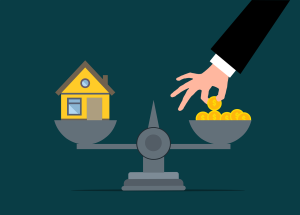Embarking on the journey of homeownership can prove to be an exceptionally lucrative venture, backed by studies revealing an annual increase of 5% in real estate values. Beyond potential profits, property owners often relish preferential taxation benefits. Owning a home remains one of the wisest financial decisions a household can make, offering both long-term wealth potential and associated tax advantages.
The Advantages of Homeownership
Despite recent economic challenges, homeownership stands out as one of the most financially rewarding investments. Research consistently demonstrates a 5% annual increase in real estate values over the long term, underscoring the enduring appeal of homes as wealth-building assets. However, a prudent approach to purchasing a home is crucial, considering prevailing market conditions and various factors influencing the real estate landscape.
Investing in a Home: A 50% Return on Investment Possibility
Investing in a home unfolds as a gratifying experience, with the potential to witness a remarkable 50% return on the initial investment within the first year. To illustrate, envision a $200,000 home with a 10% down payment of $20,000. With a 5% annual appreciation rate, this translates to a $10,000 gain in just one year. In contrast, allocating the same $20,000 to the stock market would yield a modest 5% return, equating to a $1,000 profit.
Tax Advantages of Homeownership
Owning a home extends financial benefits through tax deductions, effectively reducing an individual’s overall tax burden and providing a compelling incentive to invest in real estate.
- Property Tax Deduction: Property taxes are deductible for federal income tax purposes, with many states also permitting deductions for state income tax purposes.
- Mortgage Interest Deduction: Both federal and state income tax purposes allow the deduction of mortgage interest, applicable to both primary residences and second homes.
- Capital Gains Exclusion: Homeowners can exclude up to $250,000 in capital gains from the sale of a primary residence, with married couples filing jointly enjoying a doubled exclusion of $500,000.
Harnessing these tax benefits allows homeowners to significantly reduce their overall tax burden, essentially receiving government subsidies for their homes and fostering a financial incentive to invest in real estate.

Homeownership: Beyond Economic Gains
While the economic advantages of homeownership are substantial, the benefits extend far beyond the financial realm:
- Customization of Space: Homeowners have the freedom to personalize their living spaces, a luxury not afforded by renting.
- Additional Room and Storage: Homes offer ample space for storage and additional rooms, providing a comfortable and spacious living environment.
- Sense of Pride and Accomplishment: Ownership instills a profound sense of pride and accomplishment, enriching the homeowner experience.
- Elevated Social Status: Owning a home elevates social status, contributing to a sense of stability and success.
Securing the support of an experienced real estate agent and loan officer is crucial to finding the perfect home that aligns with individual needs.
In conclusion, investing in homeownership proves to be a financially astute decision in the long run. Despite economic uncertainties, the potential for higher returns compared to traditional markets, coupled with enticing incentives like tax deductions, positions real estate as an attractive investment opportunity. Thorough market research is paramount to making informed choices and maximizing wealth creation in the realm of homeownership.
